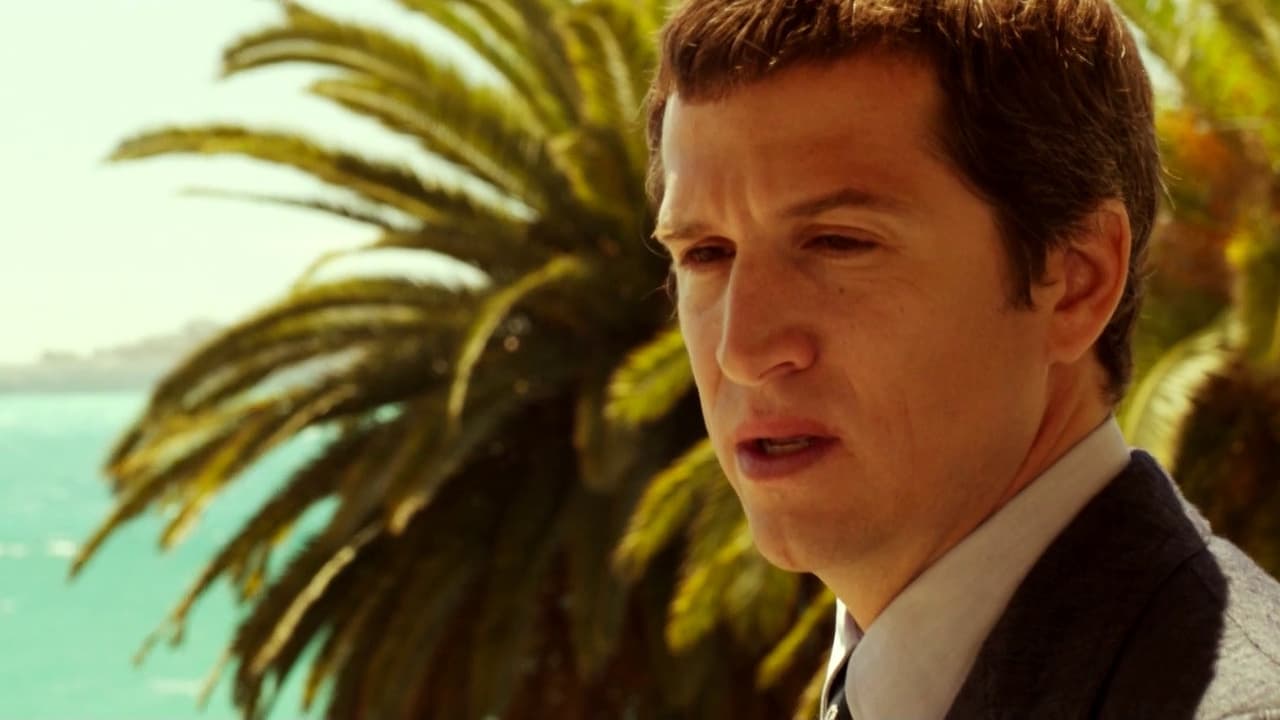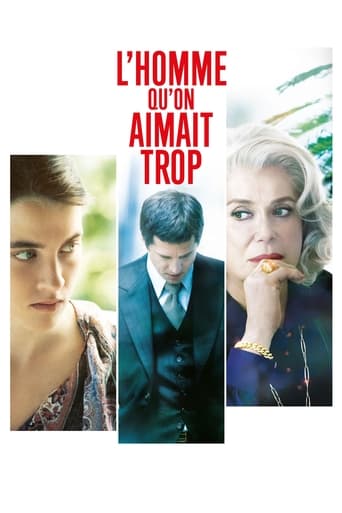David Ferguson
Greetings again from the darkness. The best French films excel at showing how relationships and personality traits can get intertwined to create a big mess where only a small blip once existed. Based on the book by Renee LeRoux, this film from decorated director Andre Techine is self-described "fiction based on real events" and follows the events that began in 1976, and the fallout over a murder-mystery during the next thirty plus years.Catherine Deneuve plays Renee LeRoux, the owner of a casino in Nice, and mother to Agnes (Adele Haenel). Agnes returns home from Africa after a split from her husband. She is strong-willed and free-spirited, and intent on cashing out her share of the casino to open her own little shop.Mother and daughter are tormented by their lack of a close relationship, and this frustration intensifies due to the pressure on Mom's casino business applied by local mobster Fratoni (Jean Corso), and even moreso thanks to the romantic relationship that brews between Mom's trusted business adviser Maurice Agnelet (Guillaume Canet) and the much younger Agnes.Maurice is a well-known (and admitted) Lothario and his business savvy manages to maneuver Agnes into betraying her mother at a crucial time. This betrayal leaves both Maurice and Agnes with a substantial financial gain, while Mom loses her casino. Agnes devolves into obsessed-lover and stalker, while Maurice is content to continue playing the field and enjoy his riches. Soon enough, Agnes disappears without a trace, and of course her mother suspects Maurice has killed her. With no body and no evidence, there can be no murder charges, and this sets Renee on a lifelong mission of proving him guilty.It's nice to see Ms. Deneuve take on this role, and the best scenes involve her interactions with Ms. Haenel and Mr. Canet (who wrote and directed the 2006 gem Tell No One). The interactions between these characters is fascinating to watch, and provides some insight to the not-always-positive side of human beings. It's also a sign of the times as cigarette smoke is present (sometimes in mass quantities) in most every scene, and the French version of "Stand By Me" fits perfectly in a rare moment that lacks tension. The final act provides quite a statement on the justice system in France, though one hates to jump to conclusions based on a few minutes of a movie.
guy-bellinger
Judging by André Téchiné's 2009 " La fille du RER " and his latest work to-date, " L'homme qu'on aimait trop ", the French director has recently developed an interest for actual events, and more particularly for those produced by duplicity. The two films mentioned have indeed in common to revolve around a person who made big headlines and did so by deceiving others (the former centering on the case of Marie L., a young mythomaniac who, in July 2004, faked an anti-Semitic attack while the latter revolves around the dubious figure of Maurice Agnelet, a lawyer from Nice, ambitious,winsome and charming, but also a crook and probably the murderer of his mistress). But sticking to facts does not necessarily mean that Téchiné has said farewell to what he had specialized in, the illustration of the torments of passion (remember for instance "The Bronte Sisters " and " Wild Reeds "). For in " L'homme qu'on aimait trop ", the director, amongst other things makes a point of depicting a passion, and one of the kind he usually delights in : an overpowering, dark feeling that bonds a troubled heart to another. But the movie being based on a true story, let's begin by considering the facts. They concern the Le Roux affair, from its genesis in the mid 1970s to nowadays. This cause celebre, still pending after 37 years, involves Renée Le Roux, the manager of a luxury casino in financial difficulties; Agnès Le Roux, her daughter in conflict with her; Jean- Maurice Agnelet, a go-getter lawyer close to Renée but who turned against her after becoming Agnès's lover; and Jean-Dominique Fratoni, a mafia boss and Renée's business rival who gained Agnès and Agnelet's support in getting his hands on Mrs. Le Roux's establishment. An undeniably circumvoluted situation but be reassured, Téchiné gets by just fine and his account of the facts is both faithful and crystal clear. Of course, this is no documentary and Téchiné being Téchiné, his film cannot be just that. It also aims to be a work of art and manages to. To my mind, and contrary to what too many critics have said, "L'homme qu'on aimait trop" HAS style. The director is indeed not content to narrate his (interesting) story he also gives an artistic approach, thus intensifying the viewer's response to what they are shown.One of his objects being to condemn a world corrupted by money (our world in fact !), André Téchiné achieves it not only through dialogue but through art as well. A brilliant Mediterranean sky too blue to be true, the exceedingly glittering golds of Renée's sumptuous gambling- house, the unashamed hugeness of Fratoni's villa and the splendor of his garden tell more by contrast about moral ugliness than a verbal accusation: the more seductive the images are the more the baseness of this tainted world appears. And there is another field in which Téchiné excels, character study. The Gallic helmer delights in digging into the psyche of his characters and trying, like a detective of the soul, to unlock their mysteries. Does he really find the key to Maurice's childish dream to make it big, to Renée's desperate fight for winning back her daughter's love, to Agnès's consuming rage? Not really, but are these personalities really reducible to mere psychology? At any rate, they are three-dimensional and - accordingly -interesting.Of these three characters, the one that fascinates the director (and us as well) most is obviously Agnès. At the same time idealistic and greedy, fiercely independent and under the yoke of passionate love, ungrateful to her mother but not devoid of love for her, Agnès, contradiction personified, is the real focus of the film and through the mystery of her troubled character, she joins Téchiné's long list of tormented heroines (from the unbalanced Paulina in "Paulina is Leaving" to the Bronte Sisters to Alice in "Alice and Martin" among others). Embodying her is young Adèle Haenen, an amazing concentrate of vital energy. But the young actress, who is often like a bull in a china shop, also manages to translate effectively the insecurities of her character. Such a mix of bluntness and subtlety, of roughness and insecurity is hardly ever seen. She is surrounded by a solid cast (Guillaume Canet, Catherine Deneuve and the little known Jean Corso, who creates an all too believable Fratoni, and the vivacious Judith Chemla as Zoune, one of Agnelet's mistresses).Some find the movie overlong, but I personally did not; probably because Téchiné has a sense of tempo: he always cuts a scene at the ideal time, never too early nor too late. "L'homme qu'on aimait trop" is a worthwhile film, beautiful to look at as well as informative, intriguing and giving food for thought. Recommended.
tux-12
"L'Homme qu'on aimait trop" is about the Maurice Agnelet vs Renée Leroux story. I am not sure that those who have followed this long criminal saga will learn anything. And not sure either that those who do not know it will be interested. Actors are quite good, but the directing is a bit flat, especially the end at the tribunal. Because the story is spread over 30 years, with new sentences made after the film was finished, it is clear that after watching it, we still don't know the truth. Was Agnelet guilty of killing Agnes Leroux, probably, was it right to send him 20 years in jail, without any corpse, any car, and any strong evidence, may be not. This film will at least let you understand well the roles of all the protagonists involved in one of the strangest disappearance (Agnès Leroux) and unpleasant suspect (Maurice Agnelet) of the seventies in Nice.

